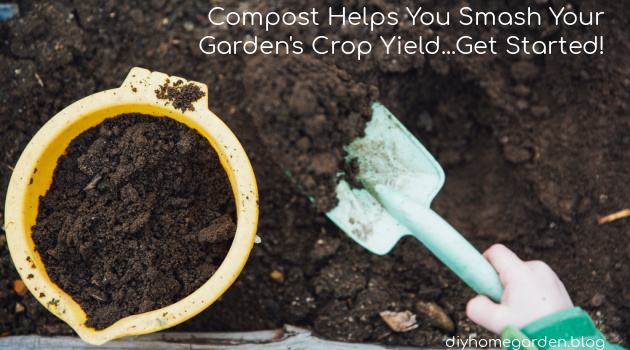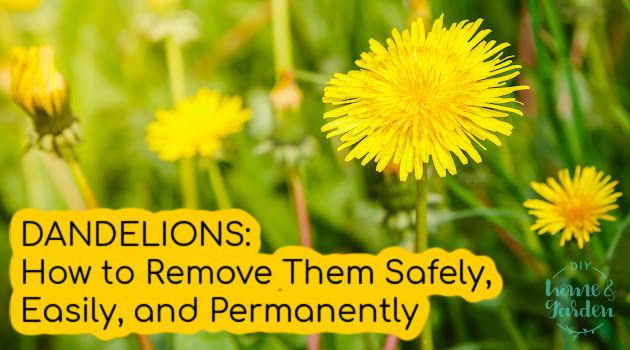Wondering how to make good use of your spent coffee grinds?
Well, you’ve probably heard about the benefits that come with adding used coffee grounds to your garden.
From boosting your soil’s nutrients to enriching your compost pile and enhancing the decomposition process, coffee grounds also significantly improve soil drainage.
One caution about applying wet or heavy coffee grounds in heavy clay soil:
Coffee grounds make a fine soil amendment if you have sandy, loamy, or loose clay soil. However, people who live in areas with dense clay that retains too much moisture might find that it adds to the problem. In that case, consider a coffee grounds “tea” that you can apply in a liquid form instead of composting with the grinds.
Here’s is my short video to explain how you can make this liquid fertilizer.
Here are seven handy ways to use coffee grinds in your garden:
Don’t trash those grounds. Instead, nourish your plants with them.
1 – Boost the nutrient contents of your garden soil
Coffee grounds are a great source of nitrogen for your plants; help improve the soil moisture retention while also keeping it aerated. Mix the grounds with dry materials and work it into the top few inches of your soil, or simply sprinkle it onto the soil surface and let it alone.
You do not want the small coffee particles to lock together and compromise your soil’s drainage ability, and so apply moderately making sure that you aren’t piling up the grounds.
Worried about the pH levels of coffee grinds? Whether using it in your garden will increase the soil acidity?
Well, if you have acid-loving plants like blueberries, azaleas, strawberries, and heathers, then you want to use unwashed coffee grinds—because they’re acidic.
Otherwise, ensure you rinse the grounds first before adding them to the soil—in order to bring them to a near-neutral pH level of 6.5.
2 – Use in compost
Coffee grounds are rich in nitrogen, and therefore a great addition to a compost pile.
They (coffee grounds) help heat up the pile, thereby, creating an ideal environment for the beneficial bacteria to thrive; which in turn, also helps in maintaining the right moisture levels in the pile.
Simply throw your used coffee grounds together with the filters onto the pile. However, keep in mind that coffee grounds (even though brown) are green compost material.
For rich compost, ensure you get the right balance of the brown and green materials.
A good rule of thumb is to use 30 parts of brown waste and 1 part of green waste. In other words, 30:1, carbon: nitrogen ratio.
For the brown material, you can use cardboard, twigs, dry leaves, or any other carbon compost material.
Your efforts will pay off in beautiful, lush greenery and vivid blossoms throughout your growing season.
3 – Coffee grinds as mulch
The grounds are organic and decompose slowly in the garden—which makes them a great mulch option.
However, their particles are ultrafine, and as such, clump together easily—reducing the amount of air and water reaching the soil; thereby compromising the health of your plants and garden in general.
To avoid such negative effects, consider mixing the grounds (in small portions) with other organic matter such as leafmold or compost before utilizing it as mulch.
If you must use the grounds as the only mulch, then try as much as possible to spread them out. Sprinkle here and there in the garden—to ensure that your soil remains aerated.
Caution: Avoid spreading the coffee grounds around seedlings or seeds as they may hinder germination and growth.
4 – Use coffee grinds as a natural repellant
If you have pets (especially cats), then you want to stop them from using your vegetable or flower garden as their “nature call-answering center”.
It’s funny but cats love to relieve themselves on soft soil where they can easily dig, do their thing, and then bury it. And your garden seems to be that ideal location.
Keep them off by simply spraying some coffee grinds around the area you don’t want them to tread. Cats don’t like the smell of coffee.
Additionally, you can use the grounds to create a barrier in your garden if crawling pests and insects are your biggest headache.
5 – Use it to feed the worms
Worms love coffee grinds for their gritty nature—as it helps them with digestion.
Whether you’re into vermicomposting or just looking to attract the worms, coffee grounds are your best bet to feed them.
A cup of the grounds, every week, added to their bin—should satisfy their coffee appetite; and fuel them to execute the decomposition task.
6 – Coffee grounds for growing mushrooms
Are you a fan of mushrooms? If yes, then start growing your own.
It’s simple.
All you need is lots of coffee grounds, a bucket, and oyster mushroom spores.
If you don’t have enough grounds, consider sourcing from your local coffee shops. They’ll readily supply it to you free-of-charge. After all, it’s just garbage to them.
You may end up with more grounds than you thought—from the cafes—which is a good thing.
And so, consider sun-drying the excess portion for later use. Store your dried coffee grinds in a glass jar, plastic container, or paper packaging. All work perfectly well and can store over a year.
7 – Use coffee grinds to suppress weeds
Coffee grinds have allelopathic properties; making them an ideal environmentally friendly weed killer.
When utilized as mulch, used coffee grinds prevent weeds from spreading through your garden; plus are nutrient-rich (as seen above) to boost the growth of your plants.
The Takeaway: Coffee Grinds Are Super Useful in the Garden
As with anything else in life, ensure the right balance and moderation when using coffee grinds, especially in your garden.
- Avoid excessive use of the grounds.
- Do not use the grounds on seedlings or seeds as it may hinder growth or germination.
- If possible, mix it with compost before using it in your garden.
- Remember to mix the grounds with other organic matter before using them as mulch. This will help ensure your soil stays aerated and drains properly.
- When mulching, keep the grounds off the plants’ stems.
- Keep in mind that even though the used coffee grinds contain small amounts of caffeine, they could still be harmful to pets (such as dogs) when you spread it directly onto the garden.
- Generally, coffee grinds are highly rich in nutrients and organic material. Therefore, using them in your worm bin or compost is the most ideal way to maximize their benefits in your garden.




